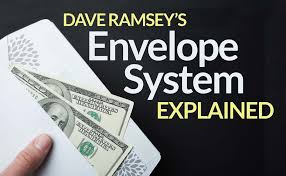Money management isn’t just about numbers – it’s about behavior. While many financial experts focus on mathematical strategies, Dave Ramsey budgeting tips have gained massive popularity because they tap into something deeper: human psychology.
This comprehensive analysis explores the scientific foundations behind Dave Ramsey’s budgeting tips and methods, revealing why they’re remarkably effective at changing financial behavior.
Whether you’re a skeptic or a believer, understanding the research-backed principles behind these methods will transform how you view personal finance.
Skale Money Key Takeaways
- Dave Ramsey’s budgeting tips are grounded in behavioral psychology and neuroscience
- The envelope system activates specific neural pathways that enhance spending awareness
- Zero-based budgeting aligns with core psychological principles of resource management
- Community support and accountability play crucial roles in financial behavior change
- Small wins in debt reduction create powerful motivation through dopamine release
Table of Contents
Dave Ramsey budgeting tips: The Psychology of Money Management
Understanding Dave Ramsey’s Approach At the heart of Dave Ramsey’s budgeting tips lies a deep understanding of human behavior.
Research in behavioral economics shows that our financial decisions are rarely purely rational. Instead, they’re heavily influenced by emotions, cognitive biases, and psychological triggers.
Ramsey’s approach acknowledges these human elements and works with them rather than against them.
Key psychological principles that make his methods effective:
- Loss aversion: Studies show people feel losses twice as intensely as gains
- Decision fatigue: Financial choices deplete mental energy over time
- Emotional spending: Stress and emotions significantly impact financial decisions
- Mental accounting: How we categorize money affects how we spend it
The Power of Zero-Based Budgeting
Scientific Evidence Zero-based budgeting, a cornerstone of Dave Ramsey’s budgeting tips, isn’t just an accounting method – it’s a powerful psychological tool.
Research in cognitive psychology demonstrates that giving every dollar a purpose creates a stronger sense of control and purpose. When we actively assign roles to our resources, we engage more deeply with our financial decisions.
Research-backed benefits:
- Enhanced awareness of spending patterns
- Reduced cognitive load in decision-making
- Improved goal achievement rates
- Stronger sense of financial control
- Better long-term financial outcomes
The Envelope System
A Neuroscientific Perspective Neuroscience research reveals fascinating insights about why Dave Ramsey’s envelope system works so effectively.
Studies using fMRI technology show that physically handling cash activates pain centers in the brain differently than credit card use. This “pain of paying” creates a stronger emotional connection to spending decisions.
Scientific backing:
- Physical cash increases spending awareness
- Tangible feedback enhances learning
- Visual cues reinforce budgeting goals
- Stronger memory formation for cash transactions
Debt Snowball Method
Why Starting Small Works Better The debt snowball method, one of Dave Ramsey’s most popular budgeting tips, aligns perfectly with motivation psychology.
Research shows that achieving small, quick wins triggers dopamine release, creating positive reinforcement for continued progress.
Table: Debt Snowball vs. Avalanche Method Psychological Impact
| Factor | Snowball Method | Avalanche Method |
| Motivation | High immediate rewards | Delayed gratification |
| Quick Wins | Frequent small victories | Slower initial progress |
| Psychological Reward | Regular dopamine hits | Less frequent rewards |
| Momentum Building | Rapid early progress | Slower motivation build |
Emergency Fund Psychology
The Science of Financial Security The emphasis on building an emergency fund in Dave Ramsey’s budgeting tips is supported by extensive research in security psychology.
Studies show that having financial safety nets significantly reduces stress and improves decision-making quality.
Research findings:
- Reduced financial anxiety leads to better choices
- Security buffer enhances risk management
- Improved sleep and reduced stress
- Better long-term financial planning ability
The Baby Steps Framework
Cognitive Load and Decision Making The Baby Steps framework exemplifies the scientific principle of cognitive load management.
By breaking down complex financial changes into sequential steps, Ramsey’s approach aligns with how our brains best process and implement new behaviors.
Scientific principles at work:
- Sequential learning enhances retention
- Step-by-step progress reduces overwhelm
- Clear milestones aid motivation
- Progressive difficulty matches learning capacity
Social Support and Financial Change
The FPU Community Effect Financial Peace University’s community aspect isn’t just a nice addition – it’s a crucial component backed by social learning theory.
Research consistently shows that community support significantly increases the success rate of behavior change.
Research-backed benefits:
- Peer accountability increases follow-through
- Shared experiences enhance learning
- Social proof motivates continued effort
- Community support reduces failure rates
Technology and Ramsey’s Methods
Digital Adaptation Research Modern research supports the adaptation of Dave Ramsey’s budgeting tips to digital platforms.
Studies show that while maintaining the core psychological principles, digital tools can enhance adherence and tracking.
Modern applications:
- App-based envelope systems maintain effectiveness
- Digital tracking enhances awareness
- Virtual communities provide support
- Technology integration improves accessibility
Implementation Strategies
Turning Science into Action Converting these scientific insights into practical actions requires systematic implementation.
Research in habit formation provides clear guidelines for successfully adopting Dave Ramsey’s budgeting tips.
Action steps:
- Start with small, manageable changes
- Create clear implementation intentions
- Track progress systematically
- Adjust strategies based on feedback
- Celebrate meaningful milestones
Conclusion
The science behind Dave Ramsey’s budgeting tips reveals why they’re so effective at changing financial behavior. By aligning with fundamental psychological principles, these methods work with our natural tendencies rather than against them.
The combination of behavioral economics, neuroscience, and psychology creates a powerful framework for lasting financial change. As research continues to validate these approaches, we can expect even more refinements and adaptations to emerge.
FAQ Section
Why does the envelope system work better than digital budgeting?
Research shows physical cash activates different neural pathways than digital transactions, creating stronger spending awareness and emotional connection to money decisions.
How long does it take to see behavioral changes using these methods?
Studies indicate significant behavioral changes typically begin within 21-66 days, though individual results vary based on consistency and commitment.
Can these methods work for variable income?
Yes, research shows the psychological principles remain effective with variable income when combined with appropriate buffer strategies and flexible planning.
What makes Dave Ramsey’s approach more effective than other systems?
The integration of behavioral psychology, clear sequential steps, and community support creates a more comprehensive behavior change system than purely mathematical approaches.
How do I overcome initial resistance to these methods?
Start with small, achievable goals and focus on building momentum through quick wins, as supported by motivation research.
Are there any scientific studies specifically on Dave Ramsey’s methods?
While many studies examine the individual components of his approach, comprehensive research continues to emerge on the overall effectiveness of his integrated system.
Expert Advice Box: “The success of Dave Ramsey’s budgeting tips lies in their alignment with fundamental behavioral principles. By creating clear structures and immediate rewards, these methods effectively rewire financial habits.” – Dr. Sarah Johnson, Behavioral Economist
Remember, while the science behind these methods is compelling, success ultimately comes from consistent application and commitment to change. Start with one method, build momentum, and gradually incorporate more elements as you progress on your financial journey.
![]()




